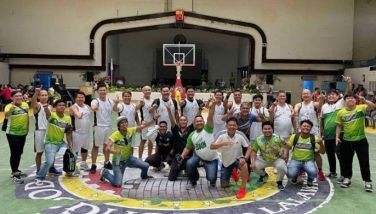Defiant

The world sat up and waited in suspense for what was billed as a “major speech†by beleaguered Syrian president Bashar al-Assad last Sunday. Save for a brief interview for Russian television last November, Assad has been scarce since that bold bombing mission that killed a brother-in-law and high security officials near the presidential palace in Damascus.
Many things happened the last two months. Syrian rebels have gained much ground and are presently assaulting a number of important military bases. NATO decided to field Patriot missile batteries on the Turkish border to prevent Syrian Army attacks on refugee camps.
Only three capitals staunchly support the beleaguered Assad regime: Moscow, Beijing and Tehran. All of them, over the past few weeks, made noises about finding a negotiated solution to the brutal civil war raging in Syria.
The last few days, there has been speculation that Assad’s few remaining allies could pressure him to negotiate a manageable transition out of this mess. None of Assad’s allies, obviously, look forward to a radical shift producing a revolutionary government sharply hostile to the three nations that supported the tyrant of Damascus. That would leave them out in the cold in the dynamic politics of the Middle East.
Beijing and Moscow helped the Assad regime evade sanctions by vetoing resolutions introduced at the UN Security Council by the Arab League and western nations. Tehran is believed to be extending material support to help the Assad regime crush the opposition. In the face of the real possibility the Assad regime could be violently terminated, all three capitals have echoed calls for a negotiated solution to the civil war.
Those diplomatic noises made by his diminishing allies obviously forced Assad out from wherever he has been hiding the past few months, emerging to deliver a much touted “major speech.†There was enough basis to be expectant of a dramatic change in attitude on Assad’s part: he must somehow appease his few remaining allies with some sort of gesture.
At the same time, however, it was important for Assad to avoid showing weakness. He needed to rally his troops, decimated by defections. He needed to play to his base and demonstrate defiance. He must show himself to be strong and far from political collapse.
A wrongly worded speech could cause his tenuous base to evaporate. Any sign of surrender will produce a tidal wave of defections. The civil war, after all, is calculated to be at its climax. The rebels have enough will, to be sure, resilient in the face of the regime’s brutal suppression. Today, it appears they have enough weapons to achieve their goal of regime overthrow.
Trying to please his allies and at the same time rally his base, Assad delivered a meandering, incoherent speech. It was a disappointment for all who sat up and waited for that “major speech.â€
The tyrant began by pulling out every rhetorical weapon from the armory of classical nationalism. He promised to defend Syria’s sovereignty and resist foreign intervention. His country’s future, he says, will not be shaped in some other country’s capital and according to the will of foreign powers.
This appeal to nationalism is understandable. Assad’s Ba’ath Party, like its fraternal party in Baghdad once led by a certain Saddam Hussein, draws its inspiration from the military coup in Turkey nearly a century ago that produced a secular regime appealing to national identity in place of tribal affiliation or religious sectarianism.
Today, as the civil war disturbingly threatened to follow sectarian and tribal boundaries, classical nationalism (the legacy of the Ba’athist movement) is the last source of legitimacy for the beleaguered regime. Like its neighbor Iraq, Syria’s boundaries were carved by a departing colonial power and encloses within a modern concept of the nation-state deep-seated tribal and sectarian identities. Those identities have now been harnessed by all sides in the civil war.
Assad then proceeded to attack the rebels, calling them “terrorists.†He launched into a tirade against the jihadists. Then he produced an unlikely conspiracy theory: claiming that the jihadist rebels were encouraged and assisted by western powers.
Having railed against the western powers and indulging in his unseemly conspiracy theory, and after saying he would not negotiate with the rebels who receive arms from foreign powers, Assad moved on to what was presumably the business of the day: opening the possibility for a negotiated settlement.
After duly thanking Moscow, Beijing and Tehran for their support, he proceeded to offer a “convention†that will produce a new constitution to be submitted to a referendum. A new national charter obviously holds out the promise of forming a less tyrannical government. It could, of course, form a new basis for Syrian unity.
Those are mere possibilities, all heavily saddled with conditions laid down by Assad in his speech. Neither Assad nor anybody else seem to have a clear idea about who, among the forces raged against the regime, from liberal intellectuals to jihadists, might want to participate in such a project.
All the brutality washed away whatever trust there was. Without trust, there can be no joint constitutional project between the regime and its opponents. Without a broker acceptable by both sides, there is nothing by which a deal might be forged.
Last year, the Assad regime promised UN and Arab League special envoy Kofi Anan that it will desist from attacking its own cities and work towards a peaceful resolution of the conflict. There was no evident effort to show the regime tried to keep its promise.
Today, given all that has happened, there is no credible third party to begin a viable peace process. In the meantime, the brutality continues.
- Latest
- Trending



























